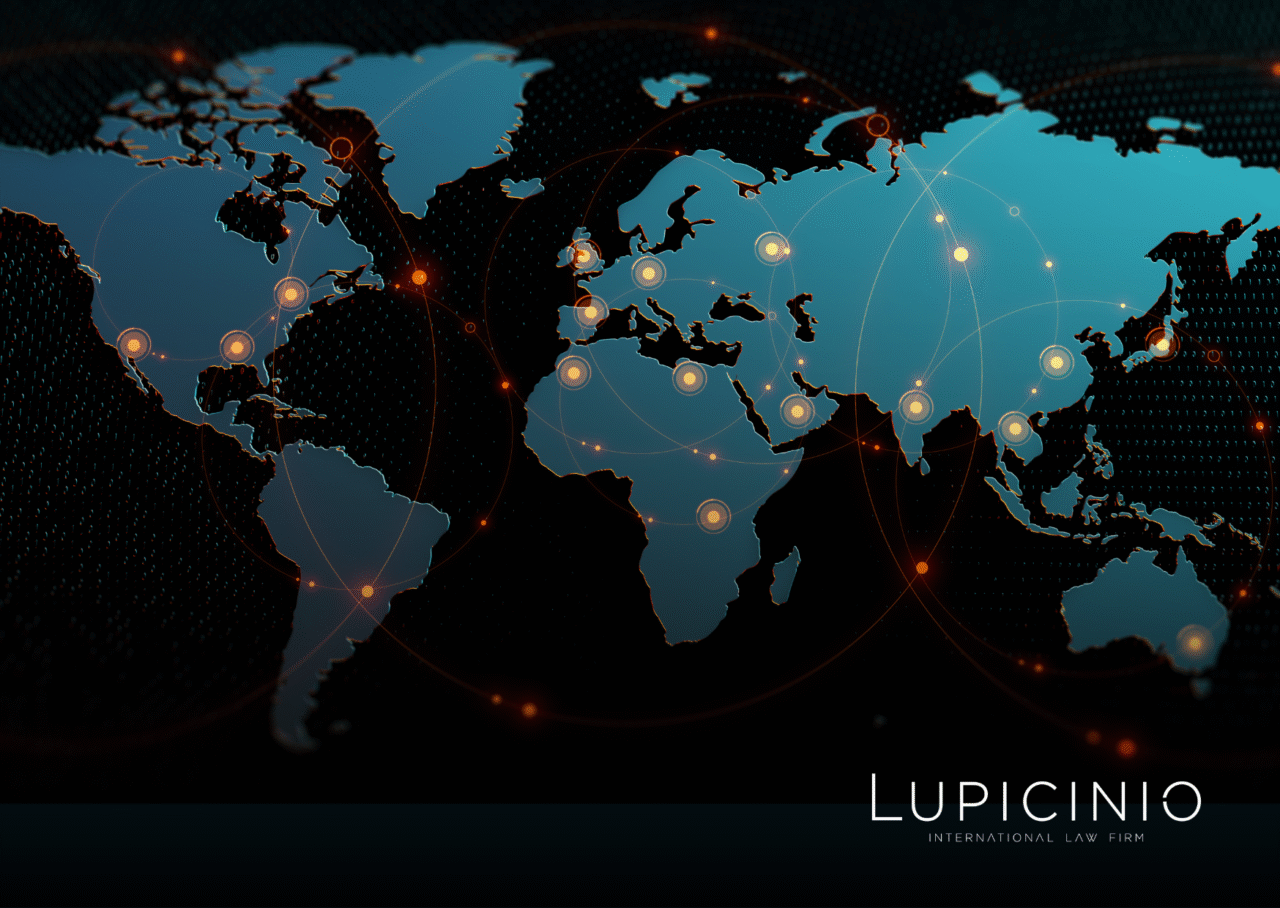WTO REVISED OUTLOOK: TRADE GROWTH IN 2025, BUT RISKS AHEAD IN 2026 (August 8, 2025)
The World Trade Organization (WTO) has revised its forecasts upwards and now projects global merchandise trade growth of 0.9% in 2025, in contrast with the −0.2% contraction estimated back in April. This improvement is mainly attributed to frontloading in the United States, where many companies rushed imports to avoid the entry into force of new tariffs. However, the WTO warns this will be temporary: the impact of tariffs is expected to intensify in the second half of 2025 and become even more evident in 2026, when growth could fall to 1.8%, compared with the previously forecasted 2.5%. The report concludes that this temporary rebound will not offset the adverse effects of recent trade barriers.
https://www.wto.org/english/news_e/news25_e/tfore_08aug25_e.htm
EU–U.S. FRAMEWORK AGREEMENT ON RECIPROCAL, FAIR AND BALANCED TRADE (August 21, 2025)
On August 21, 2025, the European Union and the United States jointly announced the establishment of a new Framework Agreement on Reciprocal, Fair, and Balanced Trade. The initiative aims to renew the bilateral trade relationship, reduce tariff frictions, and expand mutual market access.
Under the agreement, the European Union will eliminate tariffs on U.S. industrial goods and grant preferential access for selected agricultural and seafood products, including nuts, dairy, fruits, oils, and pork. In return, the United States has pledged to apply Most-Favored Nation (MFN) tariffs, or alternatively a ceiling of 15%, on products currently subject to duties under Section 232. The text also introduces rules of origin designed to ensure that the benefits generated by the framework remain concentrated within both trading partners.
In parallel, the agreement calls for enhanced cooperation in several areas, including the harmonization of standards, the reduction of non-tariff barriers, and joint work on key strategic issues such as energy security, sensitive technologies, critical raw materials, and digital trade. While not yet a full-fledged trade agreement, the framework embodies a phased negotiation process intended to broaden sectoral coverage in the future. Its announcement represents an important milestone in the transatlantic strategy, signaling a joint effort to contain recent tariff disputes and provide predictability for heavily exposed industries.
UNCTAD WARNING: TRADE POLICY UNCERTAINTY THREATENS GLOBAL MARKETS (September 1, 2025)
The United Nations Conference on Trade and Development (UNCTAD) released its September 2025 Global Trade Update, warning that growing policy uncertainty, particularly unilateral U.S. decisions and mounting technological fragmentation, poses a threat to global markets.
The report highlights risks for commodity-export-dependent economies, which remain especially vulnerable to supply chain reconfigurations and protectionist measures.
UNCTAD recommends diversifying markets and strengthening regional trade agreements to mitigate those risks.
EXECUTIVE ORDER INTRODUCES SELECTIVE TARIFF EXEMPTIONS (September 5, 2025)
On September 5, 2025, the United States announced the signing of a new executive order introducing a system of selective tariff exemptions for countries willing to open their markets to U.S. industrial exports. The measure is primarily targeted at sectors deemed strategic for the American economy, notably critical metals, pharmaceutical compounds, and advanced chemical products.
Through this initiative, the Trump Administration seeks to use tariffs as a bargaining tool, offering targeted relief in exchange for concrete concessions that would strengthen the competitiveness of U.S. industry. In practice, the executive order functions as a pressure mechanism designed to accelerate the conclusion of more advantageous bilateral agreements for Washington in a global trade environment increasingly defined by intensifying frictions.
The announcement reinforces the tariff offensive that has become a hallmark of President Trump’s trade policy and aligns with recent commitments reached with Japan, South Korea, and the European Union. Taken together, these moves underscore the White House’s intent to consolidate its international economic agenda before the end of the year, ensuring greater access for U.S. industrial products to key markets while simultaneously bolstering America’s negotiating leverage on the world stage.
WTO FISHERIES SUBSIDIES AGREEMENT ENTERS INTO FORCE (September 16, 2025)
On September 15, 2025, the WTO’s long-awaited Fisheries Subsidies Agreement officially entered into force after key ratifications by Brazil, Kenya, Tonga, and Vietnam, which brought the total number of formal supporters to 112 members. Widely regarded as a historic step in multilateral trade governance, the accord establishes the first binding global rules to curb subsidies that contribute to overfishing and the depletion of marine resources.
Among its central provisions, the agreement prohibits subsidies tied to illegal, unreported, and unregulated fishing; subsidies granted in relation to overfished stocks; and subsidies applied to fishing on the high seas where regulation is lacking. A follow-up negotiation track will address subsidies that contribute to excessive fishing capacity, including those used to finance the construction of vessels, an area of ongoing contention.
Experts emphasize the dual significance of the agreement: it boosts the environmental credibility of the multilateral trading system while also setting a precedent for future deals that incorporate ecological standards into global commerce. The timing is noteworthy, as the WTO seeks to revitalize its regulatory role after several years of institutional stagnation. To accommodate the concerns of developing countries, the text incorporates technical assistance mechanisms and transitional periods, ensuring a more balanced and feasible implementation process.
https://apnews.com/article/wto-fisheries-subsidies-ban-382fc28477aa72f3e208a6a3d563d0b3
WTO WORLD TRADE REPORT: AI COULD BOOST GLOBAL TRADE BY 40% BY 2040 (September 17, 2025)
The WTO’s World Trade Report 2025 highlights the transformative potential of artificial intelligence in global trade. The organization projects that, if countries invest in closing digital gaps and harmonizing regulatory frameworks, AI could boost global trade volumes by roughly 40% by 2040.
The report emphasizes that AI could optimize logistics, lower transaction costs, and enable greater participation of small and medium-sized enterprises in international markets. However, it also warns that without international cooperation, the digital divide between advanced and developing economies could deepen, leaving many countries behind.
https://www.wto.org/english/news_e/news25_e/wtr_15sep25_e.htm
WTO PUBLIC FORUM 2025 DRAWS OVER 4,200 PARTICIPANTS IN GENEVA (September 17, 2025)
The WTO Public Forum 2025 in Geneva gathered more than 4,200 participants, including governments, businesses, academics, and civil society organizations. The central theme was the resilience of global trade in a context marked by tariff wars and geopolitical tensions.
Discussions focused on three key areas: the digitalization of trade and its regulation, the environmental sustainability of value chains, and economic security amid risks caused by reliance on limited suppliers. The forum also highlighted the continued need to reform the WTO’s dispute settlement system, which has remained partially paralyzed since 2019.
https://www.wto.org/english/news_e/news_e.htm
EU CONSIDERS DELAY OF ANTI-DEFORESTATION IMPORT LAW (EUDR) (September 23, 2025)
The European Commission is considering another postponement of the Zero Deforestation Regulation (EUDR), which requires strict traceability for imports such as cocoa, coffee, palm oil, timber, and rubber. Producer countries including Indonesia, Brazil, and Côte d’Ivoire, along with the United States, have argued that small-scale farmers are not ready to comply with the technological and administrative requirements.
While large European food and retail companies defend early enforcement as key to ensuring sustainable supply chains, immediate application could distort markets, exclude small suppliers, and create trade tensions. A final decision is expected before the end of the year.
https://www.ft.com/content/ab4053ec-0a90-46da-a291-31f1c455663e
EU AND INDONESIA REACH “SUBSTANTIVE CONCLUSION” OF CEPA DEAL (September 23, 2025)
On September 23, 2025, the European Union and Indonesia announced they had reached the “substantive conclusion” of their Comprehensive Economic Partnership Agreement (CEPA), marking a decisive breakthrough after seven years of intermittent negotiations.
The agreement provides for the gradual elimination of tariffs on about 80% of Indonesia’s exports to the EU, particularly palm oil, fishery products, and textiles. In exchange, Indonesia has agreed to stronger environmental and labor commitments demanded by Brussels. The CEPA also paves the way for European investment in Indonesia’s strategic industries, especially in critical minerals such as nickel and cobalt, which are essential for battery supply chains and the broader energy transition. Ratification is expected by 2027, at which point the deal would enter into force, cementing Indonesia’s role as the EU’s most significant partner in Southeast Asia, on par with Vietnam and Singapore.
CHINA INCREASES ARGENTINE SOY PURCHASES AFTER EXPORT TAX SUSPENSION (September 23, 2025)
The Argentine government has temporarily suspended its 26% export tax on grains in an effort to stimulate foreign sales and rebuild its international currency reserves. The policy shift prompted an immediate response from Chinese buyers, who secured at least 10 Panamax shipments of Argentine soybeans, displacing purchases that had originally been expected from the United States during peak harvest season.
According to official statements, the suspension will remain in place until October or until export declarations reach $7 billion. For China, the surge in Argentine purchases reflects a strategy of supply diversification at a time of heightened trade tensions with Washington and elevated global soybean prices in Brazil. For Argentina, meanwhile, the measure provides a much-needed opportunity to increase foreign currency inflows, albeit at the cost of reduced fiscal revenue from export duties.
*******************************************
In Madrid, 30 September 2025
International Trade and Sanctions Department







